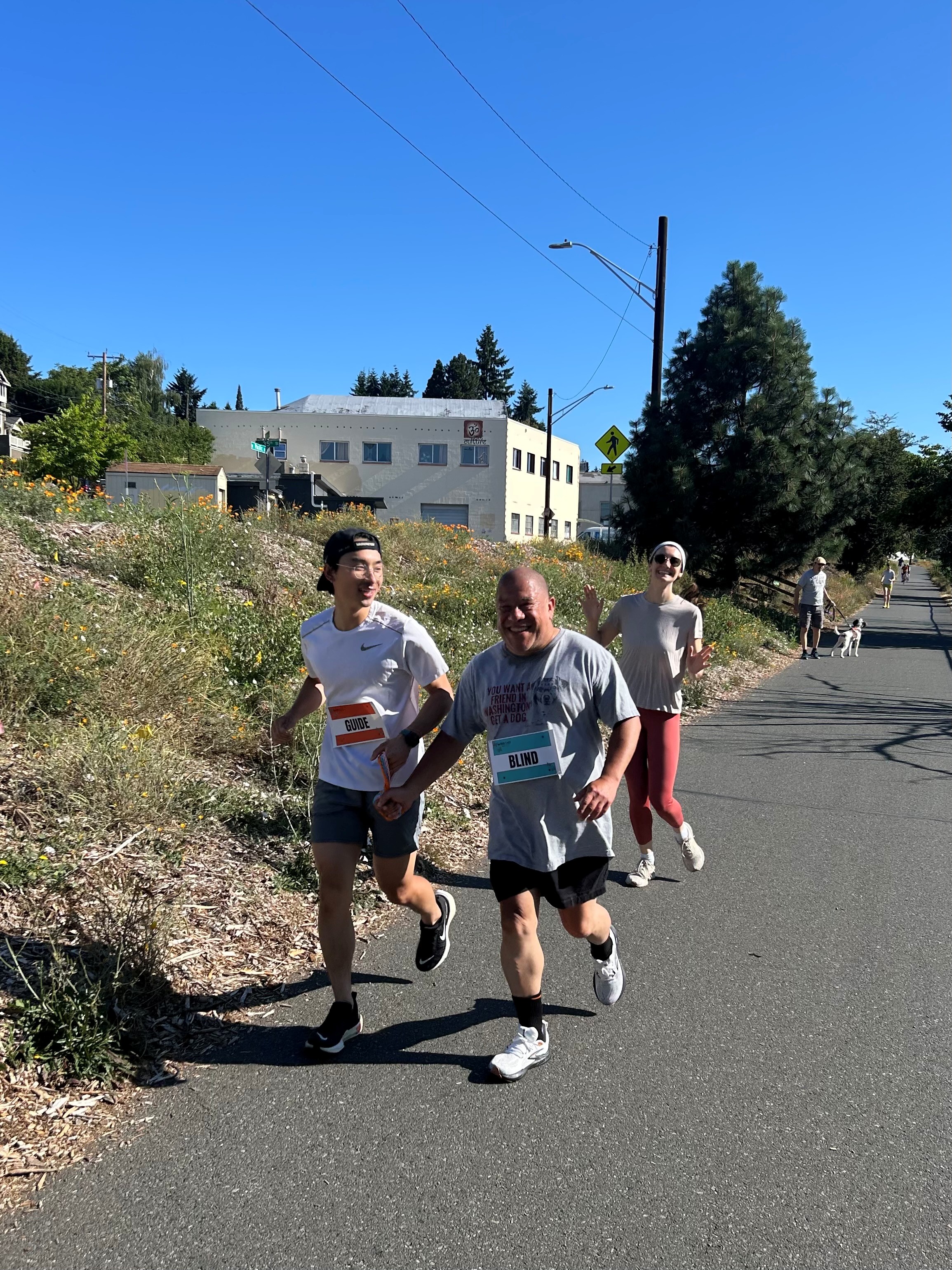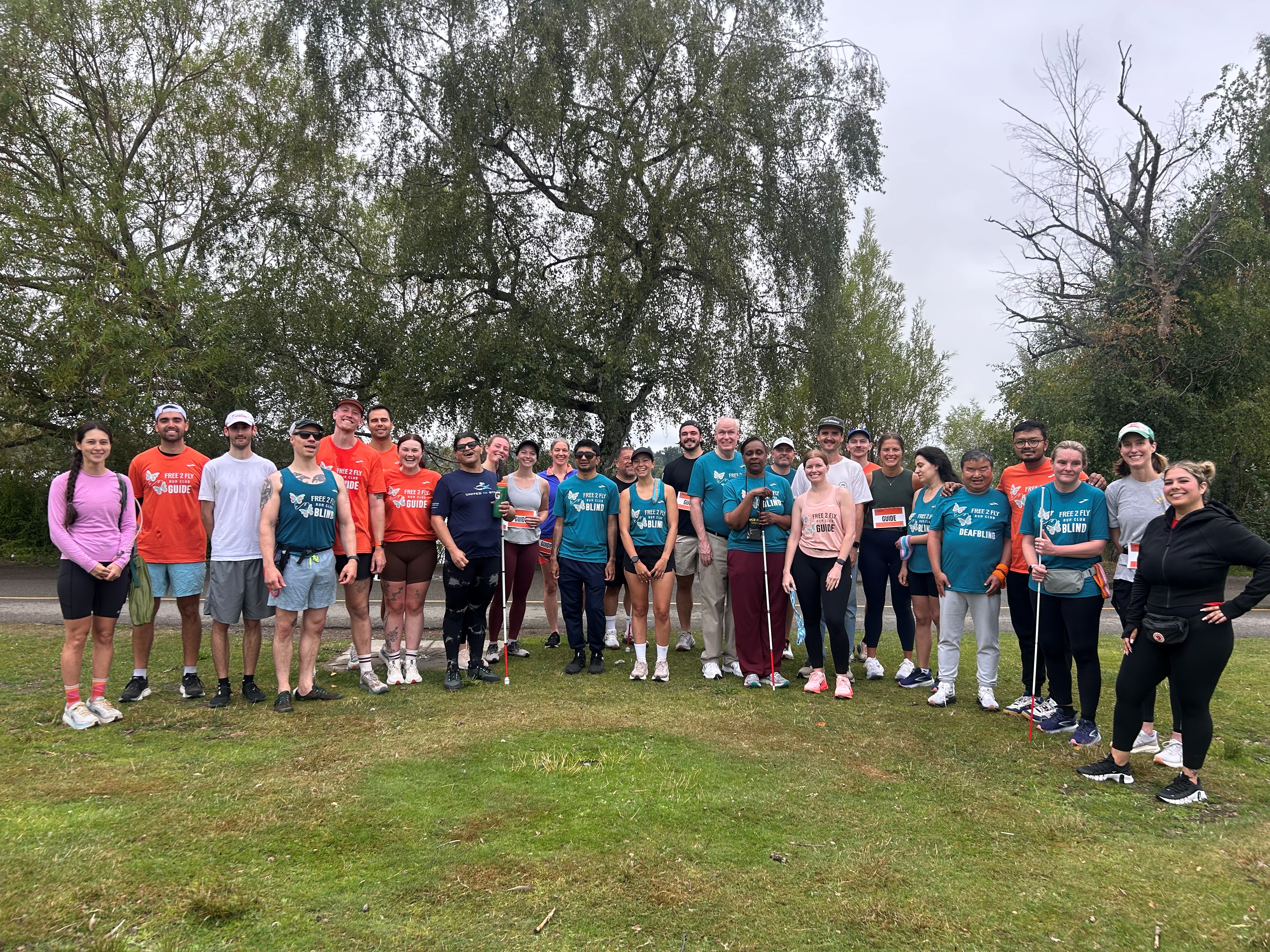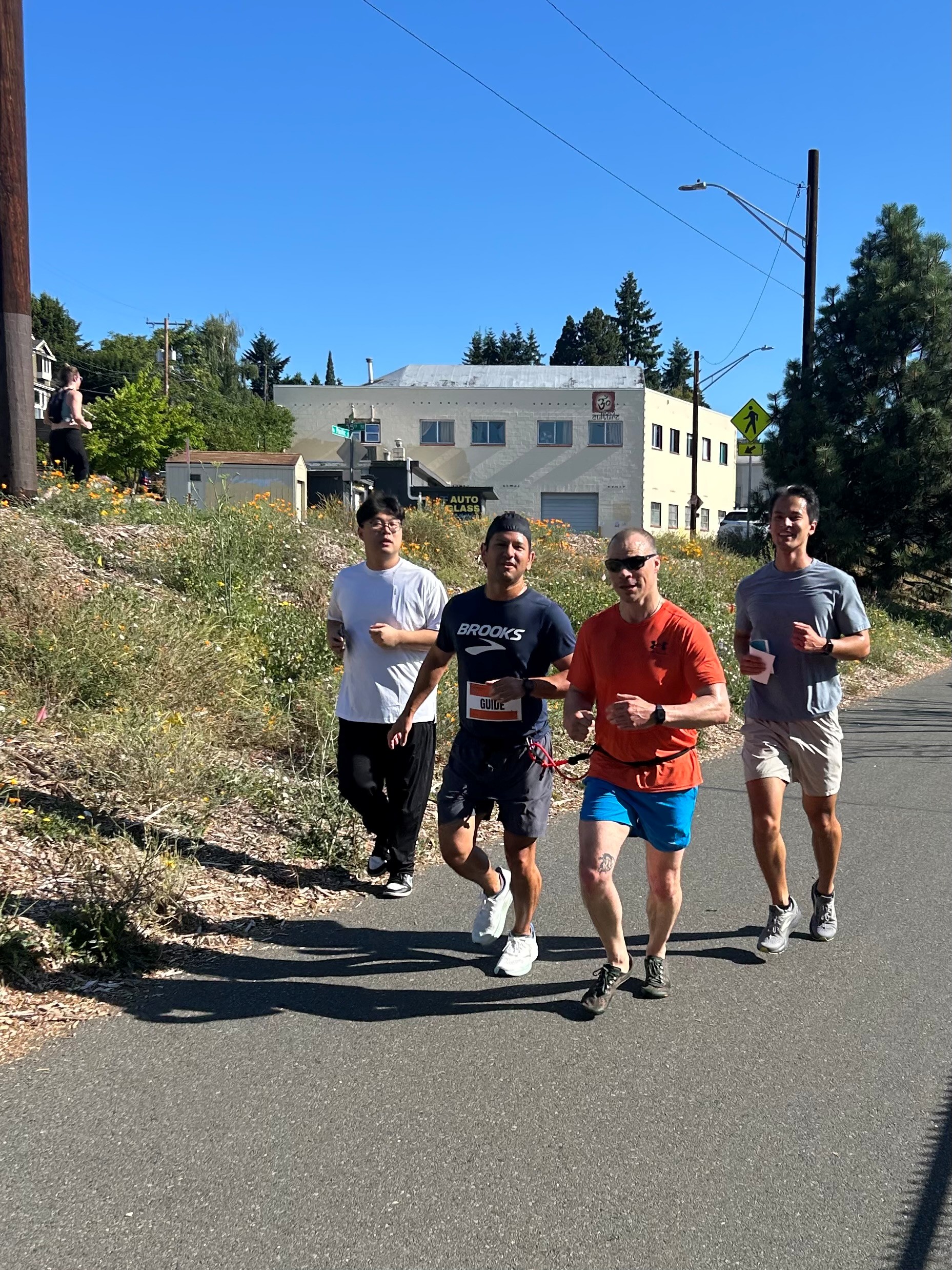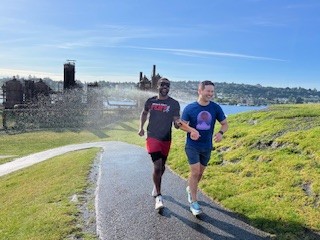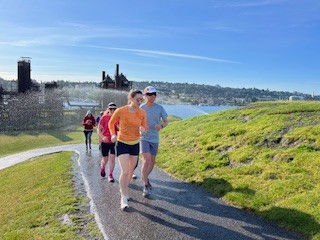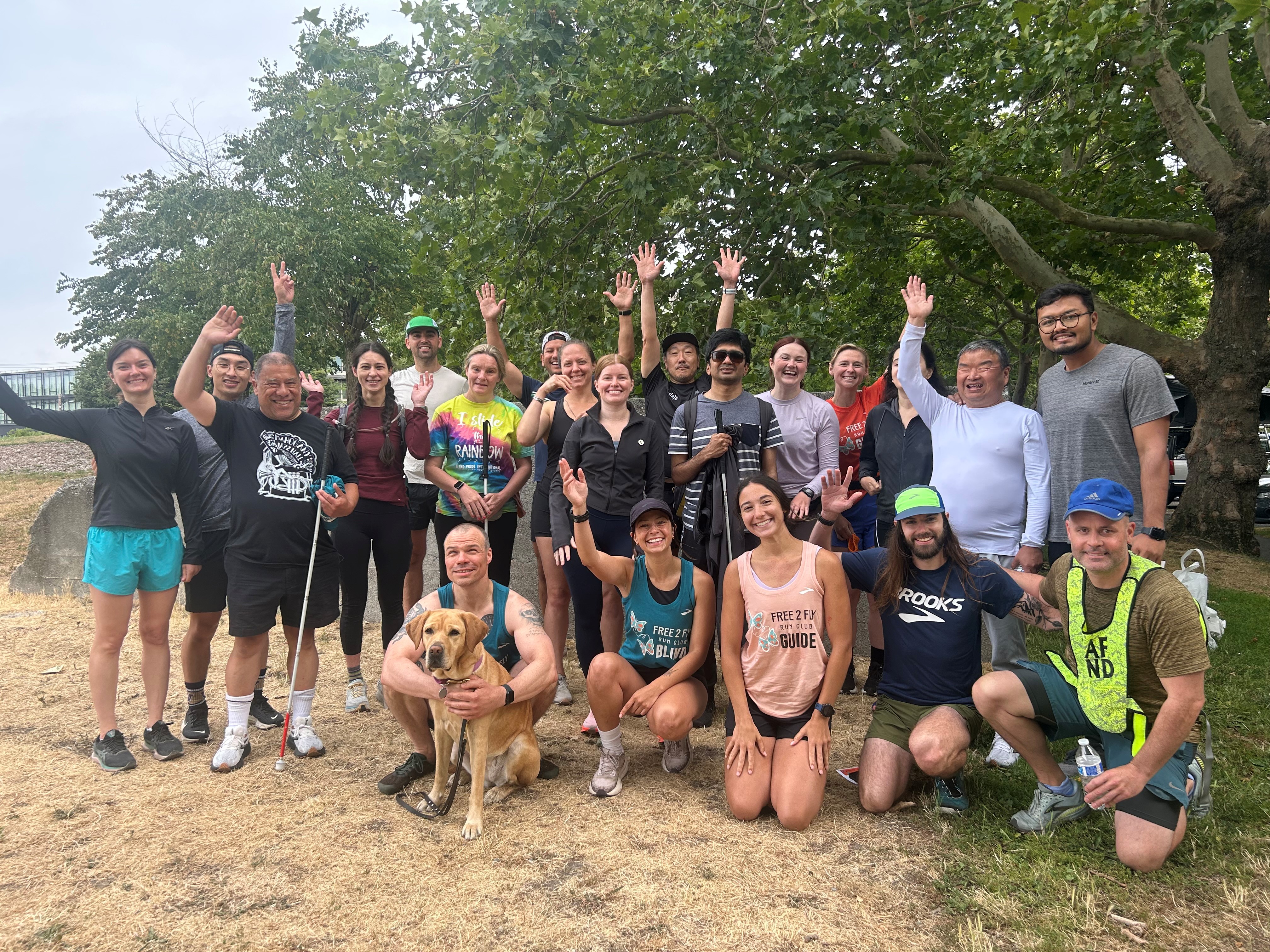
What is it like to run blind? It’s a side of running that often gets overlooked. Brooks, led by one of its employees, set out to create an educational film about what it’s like to run when you’re blind or visually impaired — and how sighted people can become guides for blind runners, to help them train and race safely.
What began as a short video about a guide-training session for Brooks employees, led by Paralympian Aaron Scheidies, turned into an emotional story about a Brooks employee in the middle of her own journey with progressive vision loss.
Ixchel Lemus-Bromley, associate manager of responsible sourcing at Brooks, is a dedicated runner. When she was diagnosed with a rare, blinding eye disease, she knew she had to find a way to keep running, even as her vision deteriorated.
We decided to share Ixchel’s story with the goal of helping people understand her experience and empathize with athletes in the disability community. Second, we hoped to inspire more runners to become certified running guides. Third, we wanted to support Ixchel’s goal of building a community of Seattle-area runners and guides.
Finally, Brooks created a social campaign around this video, in honor of International Day of People with Disabilities (IDPD), to foster a sense of camaraderie. We wanted other runners with disabilities to know they weren’t alone, and we offered those people a forum to share their stories with the world.
When Ixchel Lemus-Bromley shared that she was struggling with progressive vision loss, the Brooks Creative team was moved. When she said she wanted to be a resource for other members of the running community, we knew we had to use our platform to support her journey.
This story begins in the summer of 2024. Drawing on her experience as a runner with a rare eye disease, Ixchel arranged to bring former Paralympian and running coach Aaron Scheidies to Seattle. A legally blind athlete himself, he trained Brooks employees in the fundamentals of guiding visually impaired runners.
Our team captured footage of the event to tell a simple yet impactful story, focusing on Aaron and his work with runners in the disability community. As we filmed, however, another story emerged. Where Aaron had been dealing with limited vision for most of his life, Ixchel’s vision had only recently begun a rapid decline. So, Ixchel and Aaron had a natural connection — and Aaron’s voice of experience renewed Ixchel’s hope for her future.
What began as a single-day meeting quickly turned into a longer-term mentorship. Aaron invited Ixchel to a camp where he coaches disabled athletes. There, for the first time, Ixchel connected with other visually impaired and blind runners. The results were life changing.
Inspired by the camp, she started Seattle’s first run group for visually impaired athletes, Free 2 Fly, with the goal of building community in her own backyard. Because losing your sight doesn’t have to mean losing the sport you love.
We documented Ixchel’s journey as she blazed her path forward. But the pivot from a story about Aaron — an established, famous runner — to one about Ixchel — a Brooks employee finding her footing in the disability community — was a tough sell at first. To get the time, money, and manpower we needed, our team had to convince key decision-makers at Brooks that the project was worth pursuing. We re-pitched the short film as a raw, real story, spotlighting Ixchel’s courage and vulnerability; she had a unique willingness to share openly, without sugarcoating the huge challenge she faced. In the end, our belief in the power of Ixchel’s story shone through. The new direction was approved, and the finished product is a strong, emotionally potent piece we’re excited to share with the world.
Video results: Across Brooks’ social channels, this video received 53,500 organic views and 2,800 engagements — a 5.3% engagement rate — overperforming brand benchmarks by 2.3 percentage points. Most importantly, Ixchel got to tell her story. She leverages the video to share her experience with new people. It's earned her speaking engagements that drive positive impact in the industry, like a New York Road Runners’ panel focused on running and disability. Finally, the video helped connect Ixchel with Seattle locals to launch her own run group.
Free 2 Fly’s impact: Ixchel’s Seattle-based run club recruits visually impaired athletes and sighted guides; it’s the first organization of its kind in the area. Over a dozen blind runners have run with 10 different primary and secondary guides since Free 2 Fly started meeting in May 2025. One major, lasting impact of the group is that visually impaired runners can easily build a network of guides. For a recent race, one Free 2 Fly runner had five guides offer to accompany him — normally it’s a struggle to find even one!
Finally, our video director, Kyle Seago, was so affected by Ixchel’s journey, he became a marathon guide — and even guided Ixchel in a big race. He says, “Through training to become one of Ixchel’s marathon guides, I realized that running fast and far for my own benefit wasn’t nearly as fun, rewarding, or humbling as guiding someone else across the finish line of their own race.”
